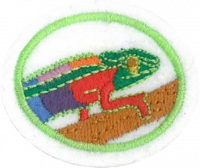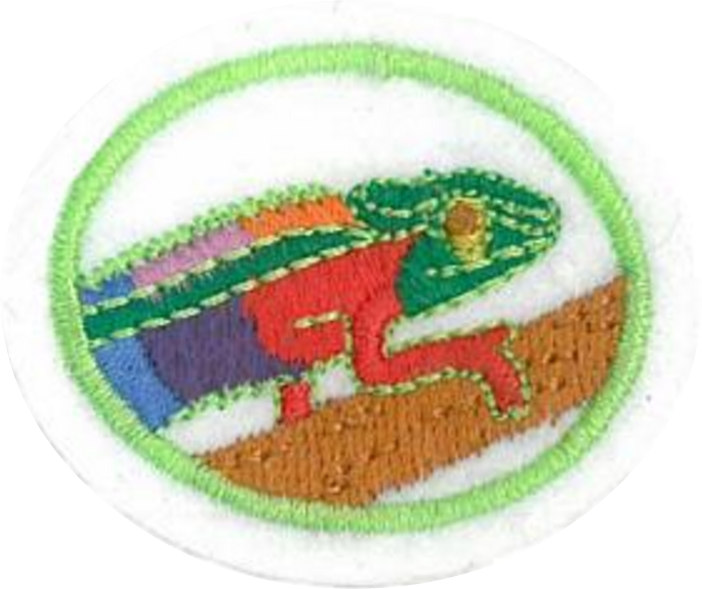Difference between revisions of "AY Honors/Animal Camouflage/Answer Key/es"
(Created page with "<noinclude>") |
(Created page with "<noinclude>") |
||
| Line 12: | Line 12: | ||
{{CloseReq}} <!-- 1a --> | {{CloseReq}} <!-- 1a --> | ||
{{ansreq|page={{#titleparts:{{PAGENAME}}|2|1}}|num=1b}} | {{ansreq|page={{#titleparts:{{PAGENAME}}|2|1}}|num=1b}} | ||
| − | <noinclude> | + | <noinclude></noinclude> |
| − | </noinclude | ||
| − | |||
| − | |||
| − | + | <noinclude></noinclude> | |
| − | <noinclude | ||
| − | |||
{{CloseReq}} <!-- 1b --> | {{CloseReq}} <!-- 1b --> | ||
{{CloseReq}} <!-- 1 --> | {{CloseReq}} <!-- 1 --> | ||
{{ansreq|page={{#titleparts:{{PAGENAME}}|2|1}}|num=2}} | {{ansreq|page={{#titleparts:{{PAGENAME}}|2|1}}|num=2}} | ||
| − | <noinclude> | + | <noinclude></noinclude> |
| − | </noinclude> | + | <!-- 2. Explicar el propósito del camuflaje animal.. --> |
| − | <!-- 2. | ||
| − | |||
| − | |||
<div lang="en" dir="ltr" class="mw-content-ltr"> | <div lang="en" dir="ltr" class="mw-content-ltr"> | ||
Revision as of 05:44, 4 April 2021
Nivel de destreza
1
Año
2015
Version
22.02.2026
Autoridad de aprobación
División Norteamericana
1
1a
1b
2
3
3a
Concealing coloration is an animal's ability to use color to hide its presence by visually blending into its surroundings.
- Deer: deer species are often two toned, with a lighter underside that helps them blend into the landscape. It is often hard to spot a deer that is not moving.
- Sharks and dolphins: some species are dark on top and light on the bottom. From the top the shark blends with the dark water, but viewed from the bottom the shark does not contrast so much with the light filtering down from the sun. This helps them reduce being spotted by predator and prey.
- Snowshoe Hare: they turn white during the winter to blend in with the snow.
- Octopi:
- Chameleon: they adapt their color to the surrounding background.
3b
Animals looking like or imitating other animals that their enemies would overlook or never eat. This can be easily confused with concealing coloration because, though the animal does blend in with its background, there is more to it than that. In disguise camouflage, the animal has the shape and color of something else. The Leafy Sea Dragon avoids notice by camouflaging itself as a piece of seaweed. The Javanese leaf insect is an amazing imitation of a real leaf. The Thorn bugs look like thorns on a rose plant. The Stick insect looks like a stick.
3c
In mimicry camouflage, an animal looks like some other animal as a form of protection.
- Jumping Spider
- Clearwing Moth
- Cockroach
- King snake
3d
In disruptive coloration, spots, strips or even patches are used to conceal an animal’s presence.
- Zebra
- Tiger
- Fawn
4
This honor offers a wide variety of ways to explore the topic independently in various learning styles that different Pathfinders will enjoy. Encourage creativity and digging deeper for the how and why of different animal camouflage strategies. We suggest looking at the Advanced Honor for additional ideas and information that can be included to make your projects more interesting.
4a
4b
Get a requirement done for the Christian Storytelling honor while you do this. Also see the last requirement for a good idea to incorporate a spiritual message into the story.
4c
4d
These should be your pictures, perhaps taken during the zoo visit or out in nature, not some photos you found on the internet.
4e
While this is ideally done in a natural environment, you will be able to observe many animals, reptiles and other creatires that use camouflage by visiting a zoo. While at the zoo you can take pictures, video, and gather useful information for completing several of the other optional projects in this honor.
Si piensa visitar un zoológico o acuario, tenga en cuenta que hay varias especialidades que tienen requisitos que se pueden cumplir visitando un zoológico o acuario. Los individuos pueden trabajar en varias especialidades en una visita, o partes de su grupo pueden trabajar en diferentes especialidades durante la misma visita.
Aquí hay una lista de especialidades que tienen requisitos que se pueden cumplir visitando un zoológico o acuario:
Bosques templados caducifolios
4f
For a very professional looking book you could use a photobook creation website. Put your book together and then order it. What a nice keepsake of your honor completion.
4g
This option is only meaningful if you prepare ahead of time. No one wants to listen to an uninformed person on an 'expert' panel. One way to do this is assign a broad habitat (desert, jungle, plains) for each panel member to research, then have a moderator ask questions about types of camo and classes of animals. The panel members each then discuss examples of how that type of camouflage is used in the assigned habitat or how various animals have been designed to fit into the environment. It is perfectly acceptable and perhaps preferred to prewrite the questions and give them to the panel members before they do the research. Panel members might prepare photos to project or display (fulfilling other options too) during the discussion.
4h
4i
Some Pathfinders combine this requirement with the Scrapbooking honor requirements helping to earn two honors at once for the project.
4j
This is a great opportunity to complete one of the requirements in the Computers - Advanced honor. You might use photos you took during a zoo visit.
4k
The project should require effort at least equal to the other options. A small website or several good blog posts might be a good example.
5
5a
5b
You can read chapter 2 online here and chapter 3 here, or get the book in any SDA church or school library.
You might want to work on the Christian Drama or Puppetry honor while doing this requirement. The spiritual topic is also excellent to work in to the children's story and some of the other optional projects above.


